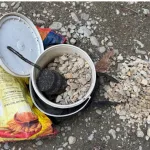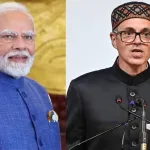The Tenth Schedule was inserted in the Constitution by the Constitution (Fifty-second Amendment) Act, 1985, sets the provisions for the disqualification of elected members on the grounds of defection to another political party. Owing to the implementation of the Tenth Schedule, there has been a substantive decrease in the defection cases. The provisions of the Tenth Schedule have stood the test of time and several judicial scrutinies. The Statement of Objects and Reasons of the Bill, which added the Anti-Defection Law to the Constitution, mentioned that the evil of political defections was a matter of national concern and needs to be curbed.
The Tenth Schedule of the Constitution, also known as the anti-defection law, was added to prevent political defections. The rationale to curb such defections was that they undermine the foundations and principles of Indian democracy. The law disqualifies legislators for violating the will of their political party. In the 37 years the law has been in place, while individual defections may have reduced, en masse defections continue. The presence of the Anti-Defection Law has also undermined democracy by inhibiting legislators from exercising their choice and ability to function independently, and restricted decision making in legislatures to a few who control political parties.
The main motivator for Parliament to enact anti defections Law was to address the ‘evil of political defections’. However, since the law was first enacted in 1985, it had not put an end to defections or helped bring the stability in governments it sought to. In its 170th report, the Law Commission of India (1999) had observed that the country’s experience with the Tenth Schedule had not been a happy one. The provision exempting splits in political parties from disqualification has been abused the most. Since then, the provision that permitted splits by one-third of the membership has been repealed. However, a merger with another party is permitted if two-thirds of the membership opts for it.
Disqualification for defection
A legislator belonging to a political party will be disqualified if he: (i) voluntarily gives up his party membership, or (ii) votes/abstains to vote in the House contrary to the direction issued by his political party. A member is not disqualified if he has taken prior permission of his party, or if the voting or abstention is condoned by the party within 15 days. Independent members shall be disqualified if they join a political party after getting elected to the House. Nominated members will be disqualified if they join any political party six months after getting nominated. The National Commission to Review the Working of the Constitution (2002) had also noted that since candidates get elected on the basis of the party that gave them the ticket, defecting flouts the very mandate on the basis of which a member was elected.
Here is how the anti-defection law — the Tenth Schedule of the Constitution, inserted by The Constitution (52nd Amendment) Act, 1985, when Rajiv Gandhi’s government was in power — came to be, and how it evolved over the three decades that followed.
The 1967 elections
The seeds of the anti-defection law were sown after the general elections in 1967. The results of those elections were a mixed bag for the Congress. It formed the government at the Centre, but its strength in Lok Sabha fell from 361 to 283. During the year it lost control of seven state governments as MLAs shifted their political allegiance.
In this backdrop, P Venkatasubbaiah, a Congress MP in Lok Sabha who served in the Cabinets of both Indira and Rajiv Gandhi, proposed the setting up of a high-level committee to make recommendations to tackle the “problem of legislators changing their allegiance from one party to another”. The proposal saw a spirited debate in Lok Sabha. Opposition members suggested renaming the proposal to “save Congress”, while the ruling party accused the opposition of inducing MLAs to defect. The Bill was debated in Lok Sabha on January 30, the death anniversary of Mahatma Gandhi, and was passed by Rajya Sabha the following day. Prime Minister referred in Parliament to the Mahatma’s seven social sins, the first one being politics without principles.
The immediate challenges
No sooner was the law put in place than political parties started to stress-test its boundaries. The issue of what constitutes a spilt in a political party rocked both the V P Singh and the Chandra Shekhar governments. The role of the Presiding Officers also became increasingly politicized. Lok Sabha Speaker said in 1992: “The Speaker is not expected to dabble in keeping the political parties weak or strong or discipline the Parliamentarians for their party purposes.”
Members are exempted from such disqualification when at least two- thirds of the original political party merges with another political party. Further: (i) the members must have become members of the party they have merged with/into, or (ii) they should have not accepted the merger and choose to function as a separate group. The decision to disqualify a member from the House rests with the Chairman/Speaker of the House.
The anti-defection law reduces the accountability of the government and legislators
The key problem with a law that penalises legislators for acting independently is that it goes against the idea of a parliamentary democracy. In a parliamentary democracy, the government is accountable to citizens through a two-step process. Elected representatives (MPs and MLAs) hold the government accountable for its actions. In turn, they are accountable to citizens, as they need to renew their mandate every election. The anti-defection law breaks both links in this chain.
Elected representatives are expected to take decisions on proposed legislation and policies by exercising their independent judgment, and factoring in the interests of citizens. They are also expected to hold the government accountable by asking questions and raising matters of importance. In addition, they are to represent their constituents. However, the disqualification provisions of the Anti-Defection Law binds legislators to the official position taken by their party on any issue. Any diversion from that position can make them liable to be disqualified from their membership of the House. This adversely impacts their ability to exercise their independent judgement when evaluating proposals that are brought before the House.
This point was elucidated by Dr. B.R. Ambedkar in the Constituent Assembly. He explained that the key difference between the presidential and parliamentary systems was the balance sought between the stability of government and its accountability to the people. A presidential system provides greater stability as the president can be removed only through impeachment for a serious crime. This feature automatically reduces the accountability until the next election. In contrast, in the parliamentary system, the government is accountable to parliament on a daily basis through questions, debates and motions. Parliament can even remove the government through a no-confidence motion. The framers of the Indian Constitution chose the parliamentary system as they gave greater importance to an accountable government than its stability. The contrarian view however is; the anti-defection law negates this purpose as the freedom of legislators to question the government and vote on various motions is constrained by the party whip. Indeed, if a party has a majority, it is almost certain to win every motion.
There could be instances when a legislator may have an opinion different from the one taken by his or her party. For instance, in the United Kingdom, MPs in the House of Commons thrice rejected the withdrawal plan which was negotiated by the government for leaving the European Union. Similarly, in India, when political parties took official position on Bills such as the farm laws, there could be MPs who may disagree with the party line. There could even be instances when a Bill may go against the interests of an MP’s constituency but his party has decided to support it. Given the provisions of the Anti-Defection Law in India, legislators cannot vote their conscience or for their constituency interests if such vote is contrary to the stand taken by their party. In other words, MPs can neither exercise their judgement nor go according to the wishes of their electorate. The wishes of the party trump all other considerations.
There have been proposals to limit the Anti-Defection Law to votes which test the stability of the government such as no-confidence motions and money bills. Note that the Anti-Defection Law currently applies to every vote, and even in Rajya Sabha and Legislative Councils of states, where the government’s stability is not at stake. The Dinesh Goswami Committee on Electoral Reforms (1990) had recommended that disqualification on grounds of defection should be limited to: (i) an elected member voluntarily giving up membership of his political party, and (ii) voting contrary to the party whip only in respect of vote of confidence/no-confidence, money bill, or motion of vote of thanks to the President’s address.6 However, this formulation too misses the core point of the parliamentary system – the onus is on the government to retain the support of a majority of MPs, including those from the same party. Only then can the government be held accountable for its actions.
The requirement of abiding by the party direction also reduces the accountability of legislators to their constituency. This accountability is enforced through the election system, as the MPs will have to justify their actions when they seek re-election. But the Anti-Defection Law gives them an easy explanation for their voting behaviour: they had no choice but to vote according to the party’s direction.
(To be continued…)
(The Author is Senior Advocate, Supreme Court of India)





